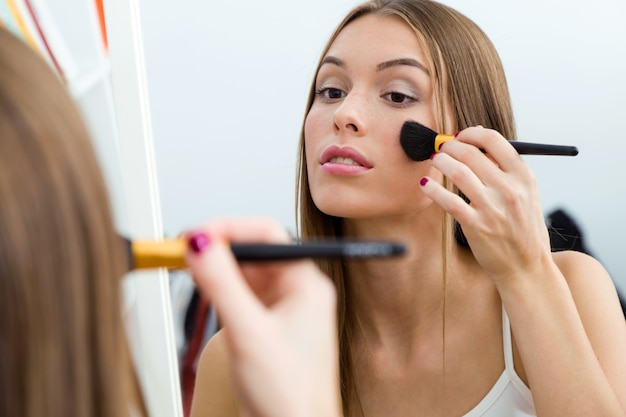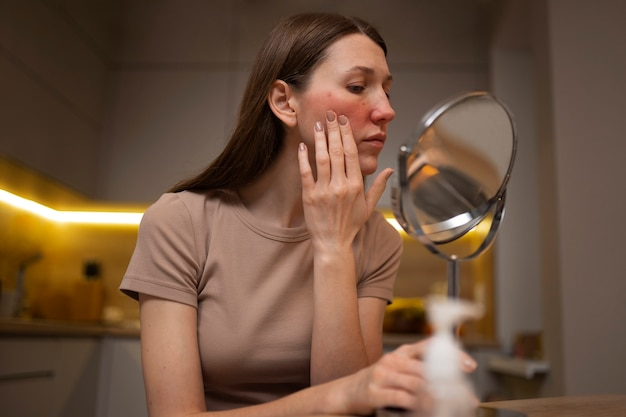The Importance of Sunscreen: Debunking Myths and Sharing Top SPF Products
Welcome to our comprehensive guide on the importance of sunscreen. In this blog, we will debunk common myths surrounding sunscreen and highlight the significance of incorporating this essential skincare product into your daily routine. We will also share top SPF products that offer optimal protection against harmful UV rays. By understanding the importance of sunscreen and using reliable SPF products, you can safeguard your skin from the damaging effects of the sun and maintain a healthy, radiant complexion.

The Importance of Sunscreen
Sunscreen is not just an option but a necessity for everyone, regardless of skin type or complexion. It forms a protective barrier on the skin’s surface, shielding it from both UVA and UVB rays, which can lead to sunburn, premature aging, and even skin cancer. Sunscreen for daily use is an essential step in maintaining healthy skin and preventing sun damage, ensuring you enjoy outdoor activities without compromising your skin’s well-being.
Debunking Sunscreen Myths
There are various myths and misconceptions surrounding sunscreen that need to be debunked. One common myth is that sunscreen is only necessary on sunny days. However, the truth is that UV rays can penetrate through clouds and cause skin damage even on overcast days. Another myth is that individuals with darker skin tones don’t need sunscreen. In reality, while higher levels of melanin provide some natural protection, everyone should use sunscreen to protect against harmful UV rays. By dispelling these myths, we can encourage proper sun protection practices.
Sunscreen and Aging
Applying sunscreen is not just about preventing sunburn; it also plays a crucial role in aging prevention. Prolonged sun exposure can accelerate the aging process, leading to wrinkles, fine lines, and uneven skin tone. By incorporating sunscreen into your daily skincare routine, you can protect your skin from photoaging caused by UV rays, maintaining a more youthful and radiant complexion for years to come.
Sunscreen for Sensitive Skin
Individuals with sensitive skin often face challenges in finding suitable skincare products, including sunscreen. However, there are sunscreen options specifically formulated for sensitive skin. These products are usually fragrance-free, gentle, and non-irritating, ensuring effective sun protection without causing adverse reactions. Choosing sunscreen designed for sensitive skin can provide the necessary protection without compromising your skin’s health.
Top SPF Products
Now, let’s explore some top SPF products recommended by skincare experts. When choosing sunscreen, look for broad-spectrum protection with an SPF of 30 or higher. Some popular options for daily use include lightweight facial moisturizers with built-in SPF, which provide both hydration and sun protection. For individuals with sensitive skin, mineral-based sunscreens containing ingredients like zinc oxide or titanium dioxide are often preferred due to their soothing properties.
Benefits of Using Sunscreen Daily
Using sunscreen daily offers a multitude of benefits for your skin. First and foremost, it shields your skin from harmful ultraviolet (UV) rays, which can cause sunburn, premature aging, and an increased risk of skin cancer. By incorporating sunscreen into your daily routine, you create a barrier that helps prevent these adverse effects, keeping your skin healthier and more youthful-looking in the long run.
How to Choose the Right Sunscreen for Your Skin Type
Choosing the right sunscreen for your skin type is crucial to ensure optimal protection and prevent any potential skin reactions. If you have oily or acne-prone skin, opt for oil-free and non-comedogenic sunscreens that won’t clog your pores. Dry skin benefits from moisturizing formulas with added hydrating ingredients. For sensitive skin, look for fragrance-free and hypoallergenic options to minimize the risk of irritation. It’s also essential to consider the sunscreen’s SPF level, with a minimum of SPF 30 recommended for daily use.
The Role of Sunscreen in Preventing Skin Cancer
One of the most significant roles of sunscreen is its ability to reduce the risk of skin cancer. Prolonged exposure to UV rays is a leading cause of various types of skin cancer, including melanoma. By applying sunscreen regularly, you create a protective barrier against these harmful rays, significantly lowering your chances of developing skin cancer. Remember that sunscreen should be applied not only on sunny days but also on cloudy or overcast days when UV rays can still penetrate the atmosphere.
Sunscreen for Outdoor Activities and Sports
Engaging in outdoor activities and sports exposes your skin to more prolonged and intense sun exposure. Therefore, it is essential to choose a sunscreen specifically designed for such situations. Look for water-resistant or sport-specific sunscreens that offer longer-lasting protection, even during activities involving water or heavy sweating. These sunscreens provide the necessary coverage, ensuring your skin remains safeguarded during outdoor adventures.
The Difference Between Physical and Chemical Sunscreens
Sunscreen comes in two primary formulations: physical and chemical. Physical sunscreens, often containing ingredients like zinc oxide and titanium dioxide, work by reflecting and scattering UV rays away from the skin. On the other hand, chemical sunscreens contain ingredients that absorb UV rays and convert them into less harmful heat. Both types of sunscreen offer effective protection, but individuals with sensitive skin may prefer physical sunscreens as they tend to be gentler and less likely to cause irritation.
The Importance of Reapplying Sunscreen Throughout the Day
Applying sunscreen in the morning is a great start, but it is crucial to understand the importance of reapplying it throughout the day. Sunscreen’s effectiveness gradually diminishes due to factors like sweat, rubbing, and sun exposure. To maintain optimal protection, reapply sunscreen every two hours, or more frequently if you’re engaging in activities that cause sweating or water exposure. This practice ensures continuous coverage and shields your skin from the harmful effects of UV rays.
Sunscreen for Acne-Prone Skin and Breakouts
Contrary to common misconceptions, individuals with acne-prone skin should not shy away from using sunscreen. In fact, using a non-comedogenic sunscreen specifically formulated for acne-prone skin is essential. Look for lightweight, oil-free, and non-greasy formulations that won’t clog pores or aggravate breakouts. Sunscreens with added ingredients like niacinamide or zinc can even help soothe inflammation and regulate oil production, benefiting acne-prone skin.
Sunscreen and Its Impact on Reducing Hyperpigmentation
Hyperpigmentation is a common skin concern characterized by dark patches or spots. Sunscreen plays a crucial role in reducing hyperpigmentation by preventing UV-induced melanin production. Exposure to the sun can exacerbate existing hyperpigmentation and hinder the fading process. By consistently using sunscreen with broad-spectrum protection, you create a barrier that shields your skin from UV rays, minimizing the risk of hyperpigmentation and helping fade existing dark spots.
Conclusion
In conclusion, the importance of sunscreen cannot be overstated. By debunking myths and shedding light on the facts, we have emphasized the crucial role that sunscreen plays in protecting our skin from the harmful effects of UV rays. Whether for daily use, outdoor activities, or sports, choosing the right sunscreen tailored to your skin type is essential. By using sunscreen consistently and reapplying it throughout the day, you can effectively prevent sun damage, premature aging, and even reduce the risk of skin cancer. So, don’t underestimate the power of sunscreen—make it an integral part of your skincare routine and enjoy the benefits of a healthier, more resilient complexion.




